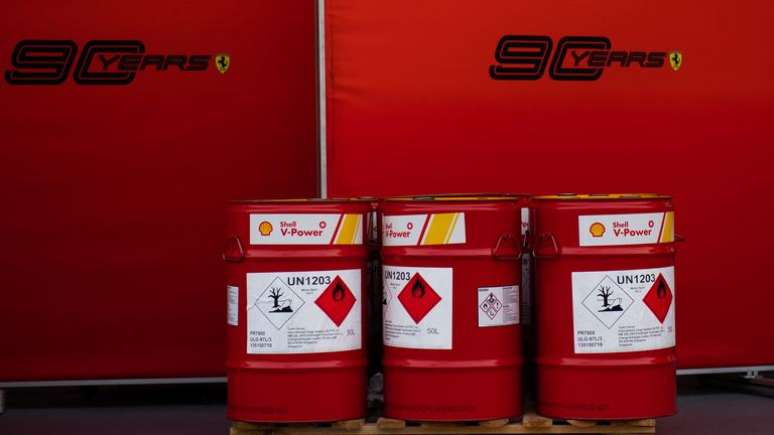One of the most dramatic points of F1 2026 passed without much attention. After all, without fuel cars don’t work.
What is certain is that F1 has decided to use 100% sustainable fuel, in pursuit of the famous zero carbon emissions. Work on this point is in full swing, led mainly by Saudi Aramco. But there is a big doubt about which path to take. After all, the Regulation has opened up the possibility of two approaches, even when talking about “sustainable fuel”: biomass fuel or synthetic fuel.
Even if everything is fuel, there is a question of performance. Synthetic fuel uses chemical processes to turn carbon dioxide into gasoline, which is still expensive and requires the use of a lot of energy to run. Biofuel focuses on the use of organic biomass, especially algae or agricultural waste.
One of the challenges for oil companies, led by Aramco, is finding the sweet spot for the fuel. Synthetic has lower performance than fossil (it has less octane, therefore generates less power). Biofuel has the problem of high consumption (those who own an alcohol car know this well).
The work has been ongoing since 2021 and several progresses have been made. One of the lines of development has been the use of 55% sustainable fuel in F2 and F3 this season. For 2024 the goal is to use the same proportion, but with synthetic fuel.
There has been a lot of talk from the FIA and F1 and the possibility of a single supplier has even been put back on the table to avoid a technological race and contain costs. But the current oil companies (Shell, Petronas, BP and Gulf) are in full development and are one of the main financiers of the category…
One of the solutions to this impasse is in Brazil. It is no news that the development of alternative fuel technology carried out in the country attracts attention. In the case of F1, Petrobrás pioneered the use of sugarcane ethanol as an additive and helped develop one of the best petrols in the category in the early 2000s.
When F1 announced the introduction of 10% biomass fuels in petrol, it was expected that the Brazilian oil company would be well positioned for this point. So much so that a product was developed for Renault, but the company’s plans changed and it was left behind (even though the Brazilian consumer took advantage of the work done on the new special fuels).
Shell, through Raízen, uses the so-called second generation ethanol in the composition of the current petrol used in F1. This product improves the biomass of sugarcane, reducing waste generation in the process. From a carbon emissions perspective, it’s a great solution, practically offsetting the entire process.
It is not surprising that Aramco has negotiated with Petrobras to provide assistance in this regard. The companies are negotiating to conclude a deal in several sectors and the Saudis are keeping an eye on Brazilian expertise in biofuels, while Petrobras is interested in the issue of green hydrogen, a field in which the Saudis have invested heavily in recent times.
We will soon have a lot of news on this matter, even more so after the adjustment that the FIA announced last week for the development of fuels for 2026 (details are not yet available).
Source: Terra
Rose James is a Gossipify movie and series reviewer known for her in-depth analysis and unique perspective on the latest releases. With a background in film studies, she provides engaging and informative reviews, and keeps readers up to date with industry trends and emerging talents.






